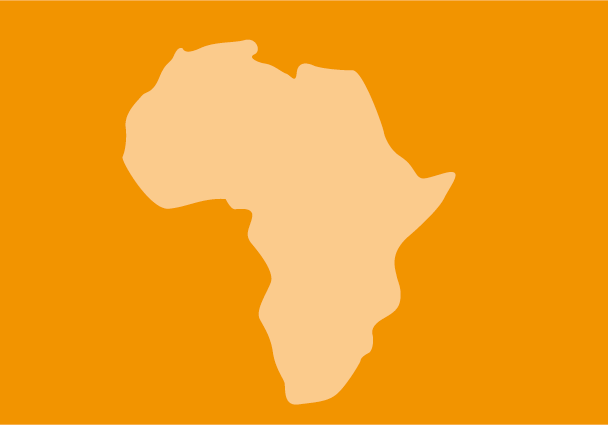The Ford Foundation and the Federal Government of Nigeria have made grants to the ICJ for its African Conference on the Rule of Law to be held in Lagos, Nigeria, from January 3 to 7, 1961.
The theme of the Conference will be “Government Security and Human Rights”. It is the first legal conference of its type to be held in Africa and over 140 distinguished lawyers and jurists from over twenty countries in Africa, as well as nine countries outside Africa will take part in the Conference.
The Prime minister of Nigeria, Alhaji Sir Abubakar Tafawa Balewa, will open the Conference and His Excellency Dr. Nnamdi Azikiwe will deliver a closing address.
At the same time the ICJ announced the election of Isaac Forster, First President of the Supreme Court of Senegal, to membership in the Commission.
Mr. Forster was born on August 14, 1903. He passed his examinations for the judicial service in 1930 and was attached to the office of the Procureur Général of French West Africa on December 30, 1930.
He was nominated Acting Judge on January 1, 1933, and became a Deputy Procureur, 3rd class, in Conakry on June 28 of the same year. In 1941 he became Puisne Judge at St. Denis, Réunion and afterwards at Fianarantsoa, Madagascar.
The following year, on July 25, 1942, he was appointed to the position of Procureur in Lome, Togo, and subsequently became Deputy Procureur General in Guadeloupe on October 18, 1945.
In September, 1946, he became Conseiller à la Cour d’Appel in Dakar. Mr. Forster assumed in 1947 the post of Président de chambre à la Cour d ‘Appel de Dakar and in 1959 became Procureur Général of the Mali Federation.
He subsequently became Procureur Général and Secretary-General of the Government of the Republic of Senegal and was recently appointed First President of the Supreme Court of Senegal.
In its announcement the Ford Foundation stated that the grant of $54,000 was being made “for an African Conference to discuss problems affecting the Rule of Law in Africa” and added that the Conference was being conducted by the International Commission of Jurists which was founded in 1952 to promote understanding and acceptance of the Rule of Law throughout the world. The Nigerian Government, in addition to its financial grant of £10,000, is also making available to the Commission various conference hall facilities, simultaneous translation equipment and transportation. A Committee of Honour of distinguished Nigerian lawyers, judges, government officials and laymen, under the Chairmanship of the Chief Justice of the Federation of Nigeria, Sir Adetokunbo A. Ademola, has been organised to make local arrangements while “Liberty”, the Nigerian Section of the Commission, will act as host.
The Conference will have the following as its objectives:
- to discuss the major problems concerning the Bench and Bar in Africa;
- to enable lawyers from areas of different cultural backgrounds and legal traditions in Africa to familiarise themselves with the varying viewpoints of their colleagues, and to examine possible common grounds for future African legal developments;
- to promote an exchange of experiences and opinions between African lawyers and prominent jurists from other continents on legal matters currently preoccupying newly independent States;
- to develop closer personal and organisational ties between the International Commission of Jurists and Bar Associations, the Judiciary, and legal study and research groups in Africa;
- to explore ways in which the International Commission of Jurists can assist in the training of future lawyers and in strengthening the independence and prestige of the Judiciary and Bar;
- to study the possibilities of establishing a long-range program in Africa by the International Commission of Jurists.
The Conference, which has been in the planning stage for over a year, is being organised in response to requests from and on the initiative of leading African lawyers and jurists, many of whom attended the Commission’s World Congress in New Delhi in January, 1959. Three topics are being considered for discussion: (i) “Human Rights and Government Security – the Legislative, Executive, and Judiciary”; (ii) “Human Rights and Aspects of Criminal and Admin-istrative Law” and (iii) “The Responsibility of the Judiciary and of the Bar for the Protection of the Rights of the Individual in Society”.
The key-note report, outlining the frame of reference of the Conference, is to be delivered by the Hon. Dr. T. Olawale Elias, B.A., LL.M., Ph.D. (London), of Nigeria, who has agreed to serve as General Rapporteur of the Conference. Dr. Elias is a Barrister-at-Law has been formerly Yarborough-Anderson Scholar of the Inner Temple, has been Simon Research Fellow in the University of Manchester and sometime Research Fellow of the United Nations Economic and Social Council. He is a Barrister and Solicitor of the Supreme Court of Nigeria and is the author of Nigerian Land Law and Custom, Groundwork of Nigerian Law, The Nature of African Customary Law and a number of articles. He has just completed a book in the British Commonwealth Series on the development of law and constitutions in West Africa (Ghana and Nigeria) which is to be published shortly.
Participants are expected from the following countries in Africa: Malagasy Republic, Nyasaland, Northern Rhodesia, Southern Rhodesia, Tanganyika, the former French and Belgian Congos, Kenya, Uganda, Ethiopia, Sudan, Cameroun, Dahomey, the Republic of Togoland, Ghana, Ivory Coast, Liberia, Mali Republic, Senegal, Sierra Leone, Gambia, South Africa and Nigeria. In addition, participants will be present from Australia, Canada, Denmark, France, Germany, India, Switzerland, United Kingdom and United States of America.




